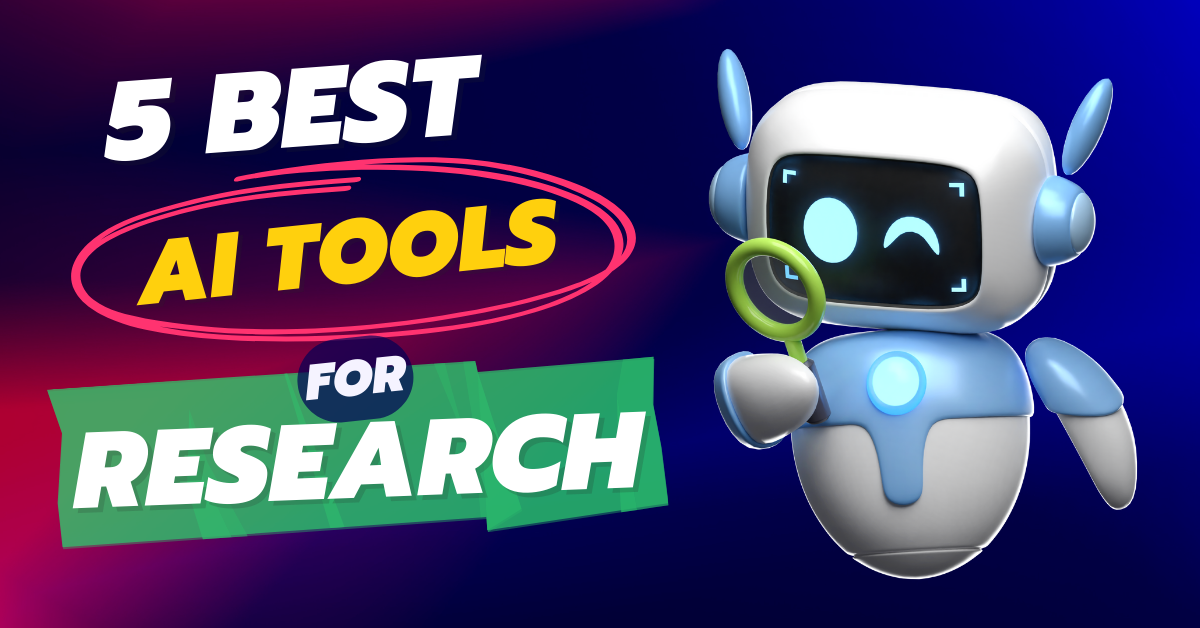If you’re an academic or if you spend any time in academic circles, you’ve probably heard about the surrounding AI academic apps.
As you know these AI-powered platforms have become quite controversial, with some claiming they transform the research while others remain doubtful.
There are numerous websites and platforms that use AI technology to assist researchers in various ways, from proofreading and editing to finding research papers and generating outlines.
If you’re embarking on a research journey, starting your PhD, or entering university this September, then this article is going to help you.
In this article, I’m going to introduce you to the 5 Best FREE AI Tools for Research that I’ve been absolutely loving lately. These tools can be incredibly valuable for various aspects of the research process.
So, let’s dive into it!
Best 5 AI Tools for Research
| Sr. No. | Tool | Description |
|---|---|---|
| 1 | Unriddle | Simplifies research papers and provides quick insights. |
| 2 | PaperPal | A writing assistant that helps with grammar and style. |
| 3 | ChatGPT | Generates creative titles and offers writing suggestions. |
| 4 | Elicit | Assists in understanding and evaluating research papers. |
| 5 | Connected Papers | Creates visual maps of research connections and trends. |
Perplexity AI: Free AI Chrome Extension
Tool 1. Unriddle AI: Simplifying Research Papers
Unriddle is the first tool on our list, and it’s a great AI tool for researchers. I came across it just a few weeks ago, and I’ve been thoroughly impressed. Unriddle allows you to upload research papers and engage with them in a whole new way.
When you upload a research paper to Unriddle, it prompts you with questions customized to the specific paper.
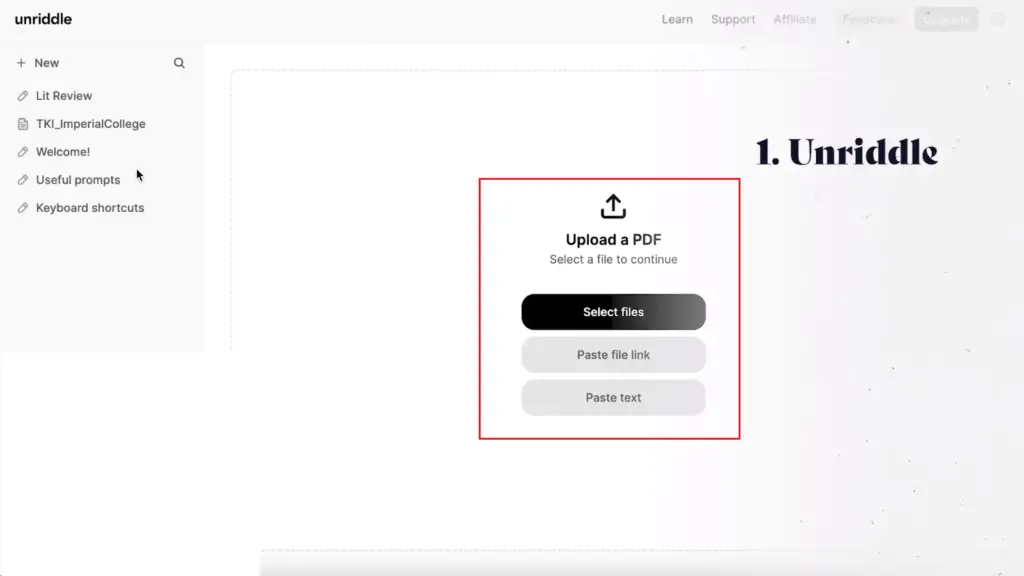
For example, it might ask you to “explain this to me like I’m five.” This is invaluable for simplifying complex concepts. It not only asks questions but also explains why these questions matter, providing context and aiding your understanding.
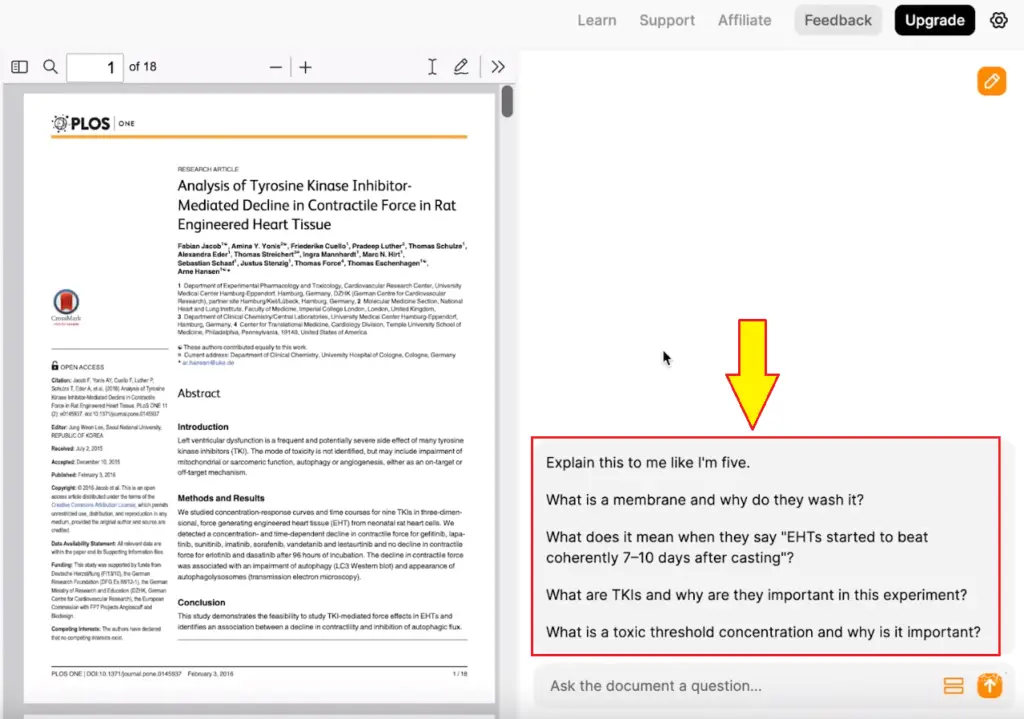
Additionally, Unriddle allows you to take notes, make comments, and even request AI assistance in summarizing or improving the writing.
However, remember that AI tools should not be used for direct copying and pasting. Instead, they should help you understand and generate ideas.
Tool 2. PaperPal: The Writing Assistant
PaperPal is another fantastic tool for researchers particularly those looking to enhance their writing.
While writing research papers you can use Paperpal. It can identify various issues, such as redundancy, capitalization errors, verb form problems, and punctuation mistakes.

You can accept or reject these suggestions, gradually improving the quality of your writing.
PaperPal also offers synonyms, helping you find the perfect word to convey your message.
And if you’re struggling with word count you can use the “trimming” feature.
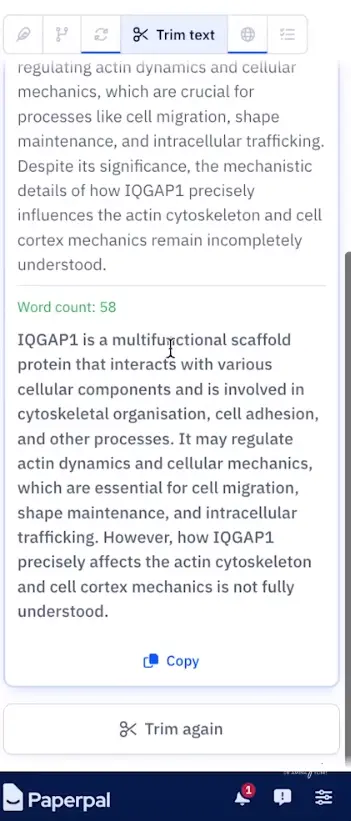
Tool 3. ChatGPT: Crafting Catchy Titles
Now, let’s talk about ChatGPT. There are specific ways you can use its power in research. One such way is by using it to improve your paper titles.
Simply you can input your title, and ChatGPT can provide suggestions to make it more engaging and compelling.

You can even ask it to generate multiple title ideas. But don’t just copy the suggestions, mix and match them to create a unique and appealing title.
Remember, the goal is to use AI as a tool for suggestions and guidance, not as a replacement for your own creativity.
ChatGPT Related:
Tool 4. Elicit AI: A Research Paper Companion
Elicit AI is a research paper companion that shines in helping you understand and evaluate academic papers. It’s very useful if you’re conducting a systematic review or need to compare multiple papers.
You can upload multiple research papers and ask for summarized information, including abstracts, what was tested, outcomes measured, participant details, and more.
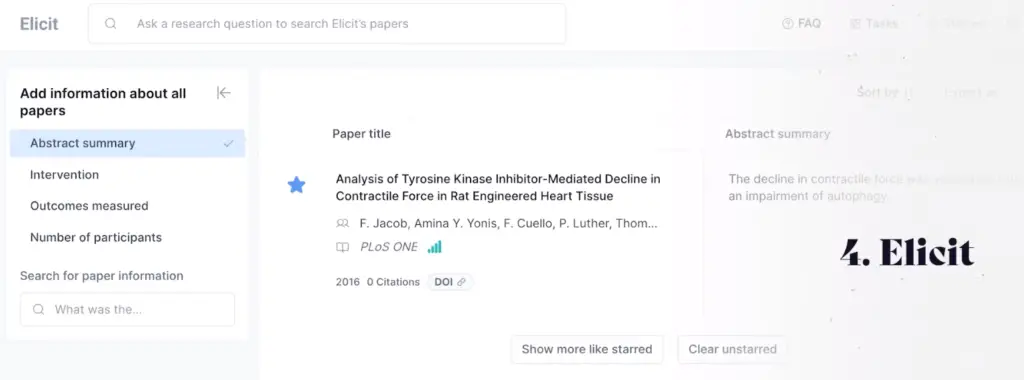
This AI tool is incredibly handy for quickly getting an overview of a set of papers.
Elicit AI also checks if a paper can be trusted by looking at things like funding, how many participants were involved, and how they compared the results.
This critical analysis feature ensures you can make informed decisions about the reliability of the research.
Tool 5. Connected Papers: Mapping Research Connections
Our final tool, Connected Papers, takes a unique approach to research exploration. It helps you visualize how papers are interconnected and makes it easier to discover related research.
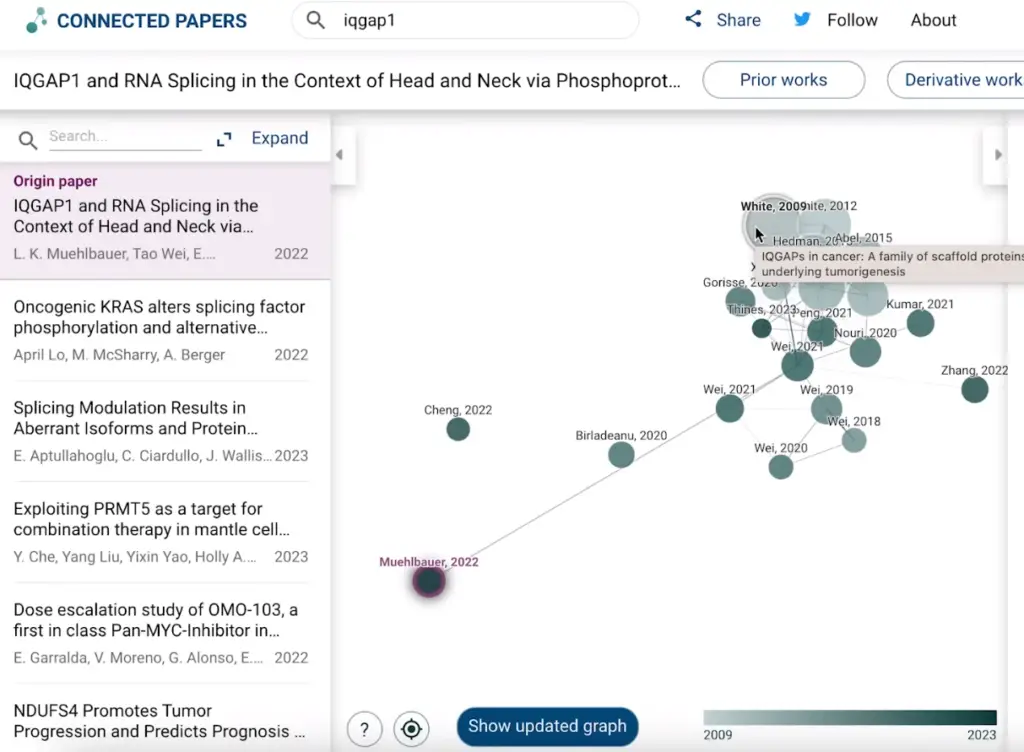
You can start by selecting an “origin” paper and Connected Papers generates a map showing related papers and their connections.
The size of nodes represents the number of citations, while node color indicates the publication year. This visual representation can help you spot trends, gaps in the literature, and essential papers you may have missed.
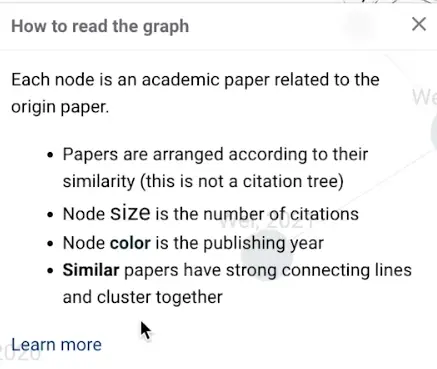
Conclusion:
These five AI tools offer a diverse range of features to assist researchers throughout their academic journey. If you need any help understanding complex research papers, refining your writing, crafting catchy titles, evaluating trustworthiness, or visualizing research connections, you can use these tools.
As you know AI can be your valuable companion in your research and always remember to use these AI tools ethically. These tools are here to assist you and enhance your work, but the creativity and critical thinking should always come from you.
If you have any other AI tools that you find valuable for research, feel free to let me know in the comments.
Latest AI Tutorials:
